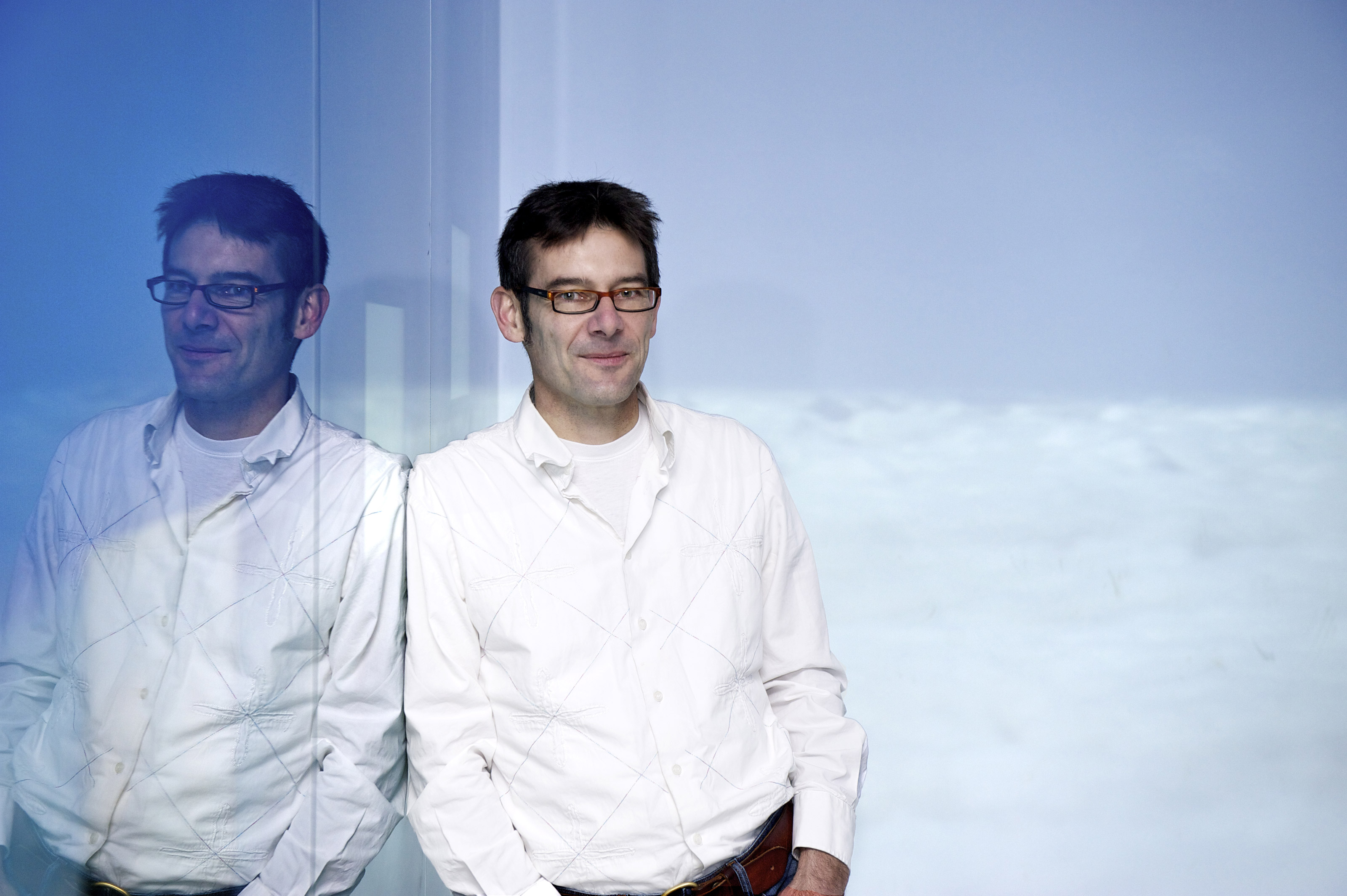
Earth observation with the help of animals
Professor Martin Wikelski is Max Planck Research Award laureate in 2016
Professor Martin Wikelski receives the Max Planck Research Award for his research on how animals interact with their environment. He is an honorary professor at the University of Konstanz and director at the Max Planck Institute for Ornithology in Radolfzell and Seewiesen. Martin Wikelski's internationally pioneering work uses a new approach: observing animals in the wild over the course of their entire life cycles. He initiated the satellite system ICARUS, which will make it possible to continuously track even small organisms around the world starting 2017. Wikelski and his team also developed the global database Movebank. The long-term goal of his research is to observe life on earth by observing the behaviour of animals, particularly the migration of animals, even of small ones. This in turn will help to predict natural disasters or outbreaks of diseases such as Ebola. The joint research prize of the Alexander von Humboldt Foundation and the Max Planck Society is worth 750,000 euros.
"Martin Wikelski is one of the most creative researchers in his field. The Max Planck Research Award is a well-deserved recognition of his achievements. I am very happy to have this excellent researcher here at the University of Konstanz and I warmly congratulate him", says Rector Professor Ulrich Rüdiger.
Martin Wikelski does not study animals in a lab, but in the wild. This is the only way to find out how a bird navigates its path from Europe to Africa, or finds its way from America to Canada even through a cloudy night sky. The biologist studies the orientation mechanisms of animals, how they collect and process information from the environment and then take decisions based on that information. "Animals have better measuring systems and superior information processing and can thus make predictions that human-made, technical sensors cannot", says Martin Wikelski. The focus, however, is not on the behaviour of individual animals, but on animal collectives, seen as a network of intelligent sensors that has developed in the course of billions of years. Since 2015, Martin Wikelski's research at the University of Konstanz has been complemented by the Chair of Biodiversity and Collective Behavior, headed by Professor Iain D. Couzin, director of the new department at the Max Planck Institute for Ornitohology, Radolfzell.
Martin Wikelski tags individual animals with miniature transmitters to record not only data on animal behaviour, but also on their environmental conditions. The University of Konstanz's scientific engineering services played a crucial role in creating the receivers. The collected data will then be stored in the global database Movebank, which Martin Wikelski continues to develop in cooperation with the Communication, Information, Media Centre (KIM) at the University of Konstanz. Wikelski also is the chief strategist for the satellite system ICARUS (International Cooperation for Animal Research Using Space), that will soon collect the data and make it possible to access them from anywhere in the world. A global consortium of animal scientists will run ICARUS, whose construction is lead by the aerospace company SpaceTech in Immenstaad, Germany. Astronauts are planning to install ICARUS on the International Space Station (ISS) in June 2017.
To analyse the data about the animals' position, bodies and environments, Martin Wikelski calls on another of Konstanz's areas of expertise. Computer Scientist Professor Daniel Keim has specialised in the visual analysis of large amounts of data. These data can be interpreted only by linking multiple data sets in sophisticated visualisations. Martin Wikelski sees himself as a team player, working to build a powerhouse that is unique in the world. In his view, the Max Planck Research Award is a "recognition of this development at the University of Konstanz."
For Martin Wikelski it is very important that the recognition from the Max Planck Research Award be placed in a wider context that will have concrete effects for human life. The data collected around the world may make it possible to gather information on climate change, predict earthquakes or identify the Ebola host linking two epidemics. Finally, plagues of locusts might soon become a thing of the past as it becomes possible to understand the swarm behaviour of the animals. The idea is to develop a global observation system based on "indicator animals" around the world.
About the laureate:
Martin Wikelski held the chair of Ornithology from June 2008 until April 2016. Now he teaches as an honorary professor at the University of Konstanz. Since December 2007 he has been director of the department "Animal Migration and Immunoecology" at the Max Planck Institute for Ornithology in Radolfzell. After studying zoology at the Ludwig-Maximilian University Munich and completing his doctorate in behavioural ecology at the University of Bielefeld, Martin Wikelski worked at different universities and research institutions in the US from 1995 to 2007, from 2000 to 2007 at Princeton University. He is an "Emerging Explorer" of the National Geographic Society. Since 2011, Martin Wikelski has been the head of the Migration Ecology Group of the FAO Task Force for Wildlife and Ecosystem Health. He is a member of the German National Academy of Sciences Leopoldina. His research has won multiple awards.
